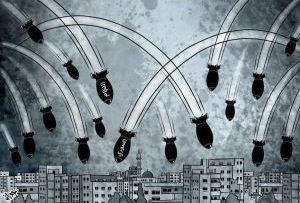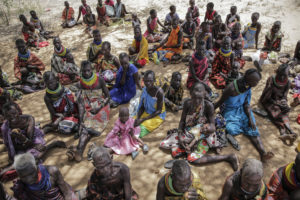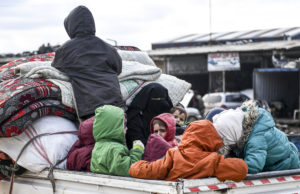Meanwhile, the Ugliness in Syria Goes On
A disturbingly high number of children have been killed in the conflict, and evidence emerges that the Syrian government has engaged in a protracted campaign of “disappearing” young men thought opposed to the Assad regime. A United Nations body described the practice as a crime against humanity.
The civil war in Syria has been unusually deadly for children, a likely result of government forces shelling civilian neighborhoods, and a campaign of government kidnappings has “disappeared” an unknown number of civilians, according to two fresh reports about the brutal battle for control of the country.
In the first report, the Oxford Research Group put the number of dead children in the Syrian conflict at 11,420, or about 10 percent of the known death toll. The vast majority of the children age 17 or younger were killed by government artillery shells and rockets striking residential neighborhoods. But at least 112 children were tortured and killed, the group said. From its report:
The analyses laid out in this report show that the most commonly identified cause of death of children was the use of explosive weapons, which killed 71percent of the 10,586 children for whom a cause of death was recorded — children killed by bombs and shells in their homes, in their communities, and in day-to-day activities such as waiting in bread lines or attending school. The second most frequent cause of death was small-arms fire, which killed 26.5% — children caught in crossfire, targeted by snipers or summarily executed. Other documented causes of death presented in this report show children killed in detention, by torture, and by chemical weapons.
National Public Radio aired a report on the findings Thursday, including tapping into online interviews with children conducted by other news agencies. As if to prove the point, a shell exploded nearby in the middle of one of the interviews (see video posted below). From NPR:
In every war, children are casualties, caught in the crossfire of adult conflicts… This latest report — compiled from four databases that record the death count in Syria by name, age and cause of death — makes the case that children are specifically targeted.
The only refuge is the border lands of neighboring countries. Here’s another number that describes the Syrian conflict: 2 million refugees, more than half of them children. For the survivors, childhood vanishes with the hardships.
“I am from Syria; there is always shelling. I was afraid I was going to die,” says a 10-year-old girl in Beirut, who is on the street alone at night selling packages of gum. She misses school, she says, but her family will be out on the street if she doesn’t earn money.
Her home in Syria is in her dreams, she says.
“A beautiful house, with two floors, and music, whatever we wanted — we could eat,” she says. “Now, I sell gum to feed my brothers.”
In the second report, the United Nations’ Independent International Commission of Inquiry on Syria concluded that the Syrian government was using kidnappings and torture as a means of trying to control and intimidate civilians. Most-often targeted are young men, who are detained at checkpoints, taken from their homes in raids or in some cases grabbed when they show up at government offices seeking information on others already disappeared. According to the U.N. report:
Investigations uncovered a “consistent country-wide pattern” in which people, mainly adult males, have been seized by the Syrian security and armed forces, as well as by pro-Government militias, during mass arrests and house searches, at checkpoints and in hospitals.
“The Government has perpetuated a system of arrests and incommunicado detention that is conducive to enforced disappearances,” the news release stated, adding that in some cases, the disappearances appeared to have a punitive element, targeting family members of defectors, activists, fighters as well as those believed to be providing medical care to the opposition.
In all the cases documented by the four-member Commission, survivors of enforced disappearances described being subjected to torture during their detention. Victims were also consistently denied their fundamental right to due process and placed outside the protection of the law.
The Commission also concluded that authorities have refused to provide information about the fate or whereabouts of the disappeared and in some instances there appeared to be a policy of not providing such information to families. Evidence collected also indicates that relatives who approached the security services were themselves arrested in certain cases.
This is an “extremely worrying phenomenon,” which has affected many thousands of family members who simply don’t know the fate of their loved ones, according to the Commission.
The commission noted that although rebel groups have also kidnapped pro-regime individuals, they usually sought to use the victims to trade for some of those secretly detained, a practice also contrary to recognized rules of war.
—Posted by Scott Martelle.
Your support matters…
Independent journalism is under threat and overshadowed by heavily funded mainstream media.
You can help level the playing field. Become a member.
Your tax-deductible contribution keeps us digging beneath the headlines to give you thought-provoking, investigative reporting and analysis that unearths what's really happening- without compromise.
Give today to support our courageous, independent journalists.






You need to be a supporter to comment.
There are currently no responses to this article.
Be the first to respond.